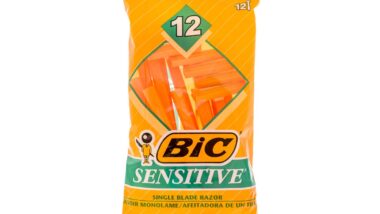Top Class Actions’s website and social media posts use affiliate links. If you make a purchase using such links, we may receive a commission, but it will not result in any additional charges to you. Please review our Affiliate Link Disclosure for more information.

Manufactured by Portola, AndexXa showed promise as a reversal agent to restore the body’s natural clotting mechanisms in patients who experienced severe uncontrolled bleeding complications from the use of the anticoagulant Eliquis.
The most recent phase of the Eliquis antidote drug trial showed that AndexXa was able to rapidly reverse the anticoagulant effects of Eliquis by 93.5%, with sustained effects across the two-hour infusion period, suggesting a high level of efficacy.
However, the Eliquis antidote fell short of FDA approval, and the FDA sent Portola a Complete Response Letter notifying the company that it must provide additional information, primarily related to manufacturing, before it receives further review.
Moreover the FDA is requesting additional data from Portola to support the inclusion of two other drugs on the label in addition to the drug being an Eliquis antidote: edoxaban (another oral anticoagulant sold under brand name Savaysa, manufactured by Daiichi Sankyo) and enoxaparin (an injectable blood thinner made by Sanofi-Aventis).
The FDA also included in its communication to Portola that it is in the process of finalizing its review of the company’s post-marketing commitments that were submitted to the agency.
“Because AndexXa addresses an urgent unmet medical need, we and the FDA are committed to resolving the outstanding questions and determining appropriate next steps,” Bill Lis, the firm’s chief executive, stated.
“Portola’s goal is to define the most expedient path to approval so we can meet the needs of these patients who have no alternative. We plan to meet with the FDA as soon as possible.”
Eliquis Antidote Controversy
Eliquis and several other oral anticoagulant medications were released into the markets beginning in 2010. These medications provided an alternative to warfarin (Coumadin), the staple oral anticoagulant drug given to patients for the previous 60 years.
Warfarin was very effective, however it was not as easy to dose as some newer medications. It required frequent blood monitoring and also required patients to have a special diet while they took the medication.
The new oral anticoagulant medications did not require frequent monitoring, offered standardized doses, and did not require patients to change their diet.
Physicians and patients alike were excited by the possibilities offered by the new oral anticoagulant medications, but they all were found to have a major flaw associated with their use: there was no antidote to stop uncontrolled bleeding in patients taking these medications.
With warfarin, there were reversal agents available to stop uncontrolled bleeding in patients. Fresh frozen plasma and intravenous vitamin K were administered to patients and these could quickly reverse bleeding incidents.
For patients taking the new oral anticoagulants, no reversal agent existed for any of them at the time of their manufacture. Only within the last year has Praxbind, an antidote to anticoagulant Pradaxa, been approved and released to the market.
Many other oral anticoagulants released recently still have no antidote.
Because of the lack of an Eliquis antidote, as well as antidotes for its pharmaceutical relatives, many lawsuits have been filed against the manufacturers of these blood thinning medications, citing their lack of safety, and plaintiffs say that they were not adequately warned by the manufacturer of all the serious and potentially fatal side effects associated with the drugs.
Do YOU have a legal claim? Fill out the form on this page now for a free, immediate, and confidential case evaluation. The Eliquis attorneys who work with Top Class Actions will contact you if you qualify to let you know if an individual lawsuit or Eliquis class action lawsuit is best for you. [In general, Eliquis lawsuits are filed individually by each plaintiff and are not class actions.] Hurry — statutes of limitations may apply.
Get Help – It’s Free
Join a Free Eliquis Class Action Lawsuit Investigation
If you or a loved one took Eliquis (apixaban) and suffered injuries such as uncontrollable internal bleeding, gastrointestinal bleeding, hemorrhaging, kidney bleeding or death, you may have a legal claim. See if you qualify by filling out the short form below.
An attorney will contact you if you qualify to discuss the details of your potential case at no charge to you.
Please Note: If you want to participate in this investigation, it is imperative that you reply to the law firm if they call or email you. Failing to do so may result in you not getting signed up as a client, if you qualify, or getting you dropped as a client.
Oops! We could not locate your form.
ATTORNEY ADVERTISING
Top Class Actions is a Proud Member of the American Bar Association
LEGAL INFORMATION IS NOT LEGAL ADVICE
Top Class Actions Legal Statement
©2008 – 2024 Top Class Actions® LLC
Various Trademarks held by their respective owners
This website is not intended for viewing or usage by European Union citizens.












